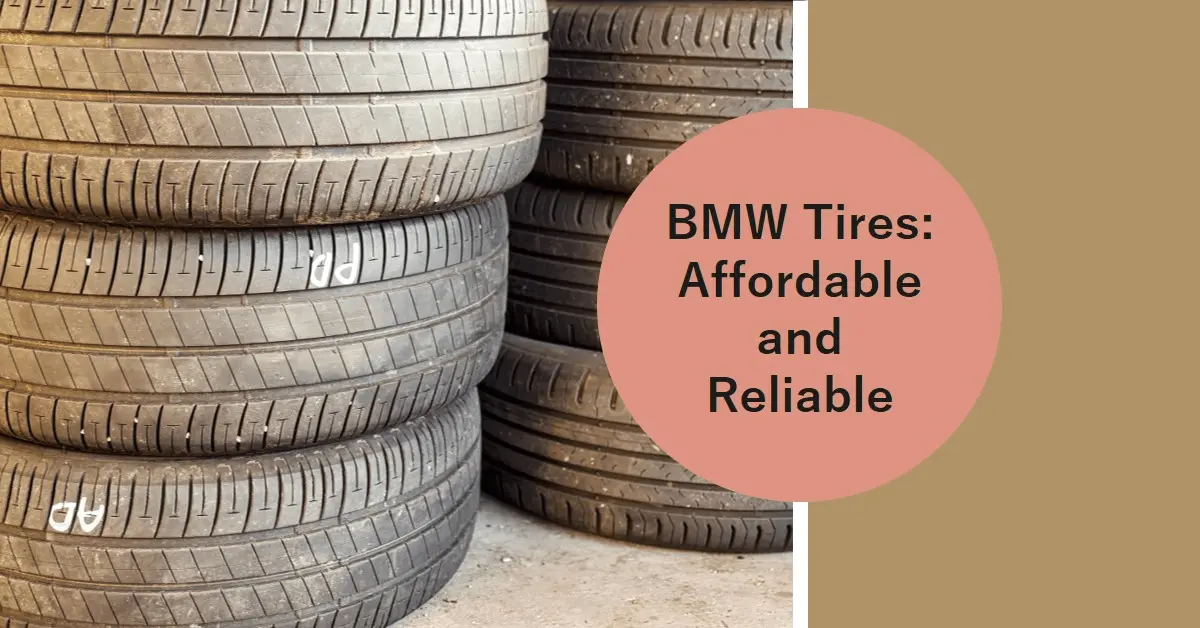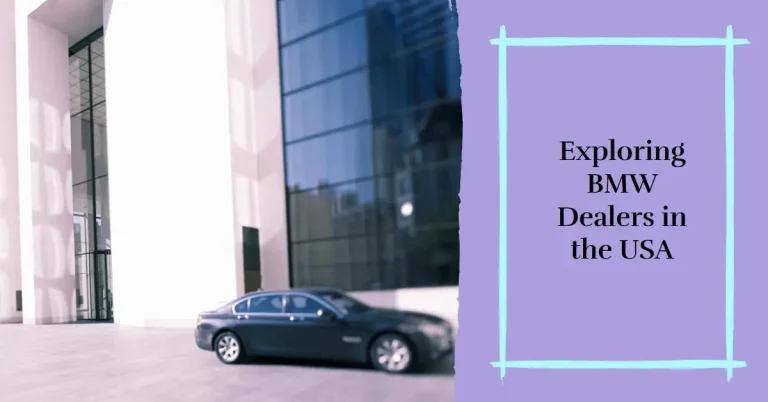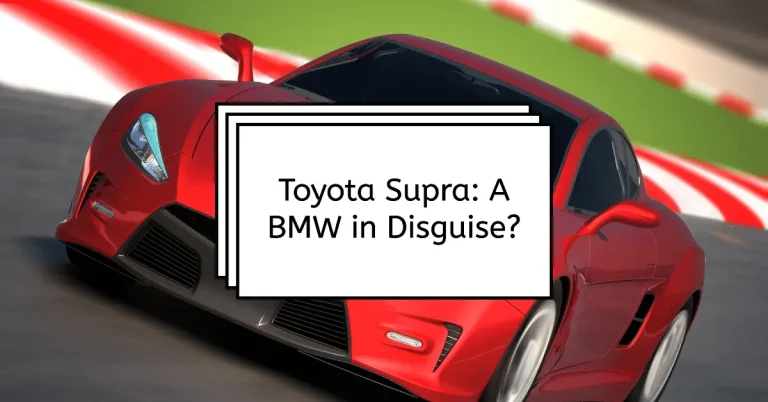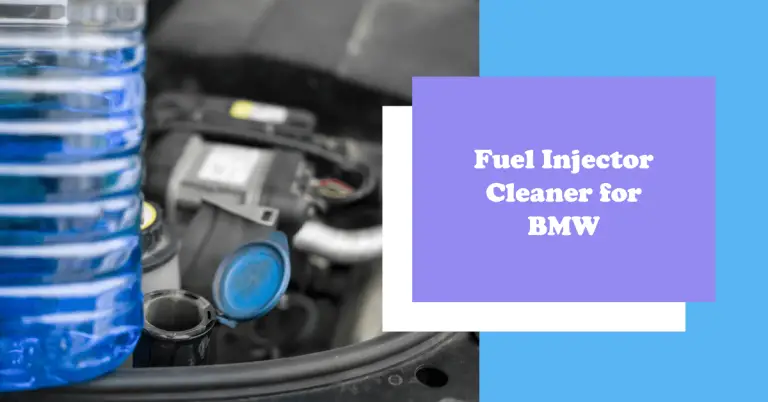How Much Do BMW Tires Cost?
So you’re a proud BMW owner looking to replace your tires. But as you browse options online or visit local shops, you can’t help but wonder: how much are BMW tires?
BMW tire pricing, like any vehicle’s tires, depends on a variety of factors. But on average, you can expect to spend $100-$150 per tire for a quality set. High-performance options from the dealer or luxury brands may cost up to $500 per tire.
In this comprehensive guide, we’ll overview everything that impacts BMW tire costs and provide price ranges for different configurations. Read on to learn about OEM vs aftermarket tires, size and type differences, where to purchase, and when to replace them.
OEM vs Aftermarket BMW Tires
One of the first decisions is whether to stick with Original Equipment Manufacturer (OEM) BMW tires or go aftermarket.
OEM BMW tires are made to the vehicle manufacturer’s specifications and designed to optimize handling, ride quality, and performance. They also undergo extensive testing to meet strict standards.
Many BMWs come equipped with run-flat tires as an added safety mechanism. Run-flats are reinforced with sturdy sidewalls so you can drive approximately 50 miles at 50mph after a puncture. This prevents you from having to immediately pull over and change a flat tire.
You can absolutely switch out the run-flats for standard tires to save money or improve the ride. But you’ll lose the built-in run-flat functionality.
Aftermarket tires encompass any brand designed to fit your BMW that isn’t OEM. You’ll have a wider selection of brands, tire lines, sizes, and prices. Performance may differ somewhat from OEM spec, but many aftermarket options still provide an excellent driving experience.
Tire Size Considerations
One of the biggest factors determining BMW tire pricing is tire size. This includes:
- Section width – Measured in millimeters, this is how wide the tire is from sidewall to sidewall. A wider section width normally provides better handling and cornering.
- Aspect ratio – This measures the sidewall height as a percentage of the section width. So a 50 aspect ratio means the sidewall is half as tall as the tire is wide. Lower aspect ratios tend to be sportier.
- Rim diameter – The wheel rim size measures in inches. Common BMW rim diameters are 18, 19, and 20 inches. Bigger rims typically require lower-profile tires.
For example, a 245/45R18 96Y BMW tire breaks down as:
- Section Width: 245mm
- Aspect Ratio: 45% (0.45)
- Rim Diameter: 18 inches
- Service Description: 96 (load index), Y (speed rating)
Larger wheel and tire diameters, lower-profile sidewalls, and wider section widths all translate to higher replacement costs. Upgrading your BMW’s tires to a larger size will also increase price.
BMW tire size differences impact pricing significantly
So a set of 225/50R17 tires will run cheaper than 275/35R20 high-performance tires found on M Series BMWs. Tire Rack provides a handy tire size finder tool to lookup options and pricing based on year, make, model and configuration.
Tire Type Differences
Several classifications of tires are designed for different seasons and driving conditions. The type you select also affects cost:
- All-season – As the name suggests, these handle all seasons and conditions well. All-seasons offer a comfortable ride with reliable handling, traction, and treadwear. They’re the most common replacement for everyday driving.
- Summer – Summer performance tires are optimized for warm, dry conditions with responsive handling and traction. The tread compound tends to wear more quickly in cold weather though. Most sporty BMWs come with high-performance summer or max-performance tires.
- Winter/snow – Winter tires have deeper, more open tread patterns and advanced compounds to provide traction in snow and ice. They are mandatory in some snowy regions during winter.
- All-weather – All-weather tires are designed to perform well year-round, including light snow. They slots in between all-seasons and winter tires.
- Run-flat – As covered earlier, run-flat tires let you drive up to 50 miles after a puncture. This innovative feature comes at a 25-100% price premium however.
In terms of pricing, all-season and grand touring tires are generally the most affordable options, followed by max-performance summer tires. Winter/snow options can have added costs given the specialized tread design. Run-flats demands the highest premiums over comparable standard tires.
Popular Tire Brands for BMWs
Industry leaders dominate the premium tire segment for German luxury vehicles. BMW partners closely with these manufacturers to develop OEM tire lines:
Dunlop Popular Dunlop tire choices like SP Sport Maxx RT, SP Winter Sport 4D, and Direzza ZIII showcase modern technologies for precise handling and reliable traction across various conditions. Pricing is competitive from this Sumitomo brand.
Bridgestone
As the world’s largest tire maker Bridgestone has BMW-specific fitments like the Potenza RE980AS Pole Position RFT combining dry grip and wet traction through an asymmetric tread pattern and rigid inner casing. Expect premium pricing from $200-350+ per tire.
Pirelli This iconic Italian brand supplies ultra high-performance P Zero tires for BMWs and other European marques. Developed for responsive steering and stiff sidewalls to mirror sport suspension. Their 70,000 testing miles sets expectation for the $250-$500+ price tags.
Michelin
Michelin brings the technology behind their Pilot Sport, Latitude Sport, and X-Ice lines to BMWs. Michelin’s MaxTouch construction precisely conforms to the road using maximum rubber-to-road contact. Expect to invest $150+ per Michelin tire fitted for your BMW.
Continental
Rounding out the top manufacturers, Continental tires prioritize extreme grip like their ExtremeContact Sport while dampening road noise on premium sedans through PremiumContact models. Except pricing around the $200 range for Conti’s bred on Germany’s autobahns.
While we can’t cover all brands, these five dominate the BMW tire segment through advanced compounds and road feedback. If sticking with OEM equipment, you’ll likely be choosing among them.
Where to Buy BMW Tires
Now for the buying experience. You have two main options – order online or visit a local shop.
Dedicated online BMW tire retailers like TireRack.com or DiscountTire.com simplify sizing, buying, and installation. Input your vehicle details to filter compatible tires with pricing, then choose local installation. This locates deals in one spot while supporting neighborhood shops. Consider delivery charges for tires shipped to the installer though.
Your neighborhood tire shop or dealership are convenient one-stop options too. An on-site associate can match tires to your vehicle and discuss service options. You won’t pay shipping costs either. Just compare pricing online first since local markups can be higher on luxury vehicles.
Finally, authorized BMW service centers stock OEM-equivalent tires compliant with factory specifications. Factory-trained technicians handle mounting and balancing also. While paying dealer pricing expect unmatched quality control – especially important if upfitting staggered sets. Any reputable shop can handle most tire changes otherwise.
When to Replace Your BMW Tires
With so many choices available, determining when exactly to replace tires becomes necessary too. Here’s a quick overview of what to monitor:
- Check your tread depth using the penny test placing an upside down penny into the grooves. If you see above Lincoln’s head, you have adequate depth. If you only see his forehead or hairline, new tires are needed.
- BMW recommends replacement before you hit the tire wear indicators – 1.6 mm ridges inside the main grooves signaling minimal tread. Alignments help reduce uneven wear.
- Depending on driving distances and conditions expect to need new tires within 25,000 to 50,000 miles. Performance models seeing regular enthusiastic driving may require changes more frequently – below 15,000 miles even.
- Replace any tires over 6 years old from the production date stamped inside – regardless of tread left. Rubber compounds and internal components degrade over time.
- Prioritize new tires at the first sign of decreased wet/snow traction. Maintaining grip and stopping power is too crucial for safety.
Tread closely wearing down? Don’t wait once you hit the wear indicators or performance suffers.
While inspection takes just seconds, catching tire wear early prevents getting stuck with big replacement bills down the road on your BMW.
Installation & Special Offers
With new tires purchased, a proper install is critical for fit, balancing, and orientation. Some tips:
- Run alignments when rotating or replacing tires to prevent uneven treadwear. These optimize suspension angles.
- Torque wheel lugs to the vehicle spec with a calibrated torque wrench, and never over tighten.
- Reset TPMS sensors so correct pressure readings transmit. Most installations include this.
- Balance wheels to eliminate vibrations using wheel balancers and calibrated weights.
Authorized BMW service centers are specially equipped to follow factory procedures and settings during tire jobs. Their certified technicians use approved tools meeting BMW Group standards worldwide. This expertise does come at a price. Still, correct installation preserves your ride quality and investment.
Many retailers bundle free services like lifetime balancing/rotations or road hazard protection when purchasing a set. Even base packages mount and balance for free. Explore any current coupons, rebates or promotions when pricing options too. Saving $70 off a $600 tire set adds up.
Conclusion
Understanding BMW tire sizing, comparing types and brands, and monitoring wear empower you to make the right choice when pricing replacement rubber. Expect to budget $100-$150 per tire on average through aftermarket brands, up to $500+ for high-performance OEM fitments. And purchase from reputable sources ensuring proper fitment, rotation, and ongoing maintenance.
Now that you know exactly how much are BMW tires, which option fits your needs and budget? Share your experiences upgrading BMW tires below!







